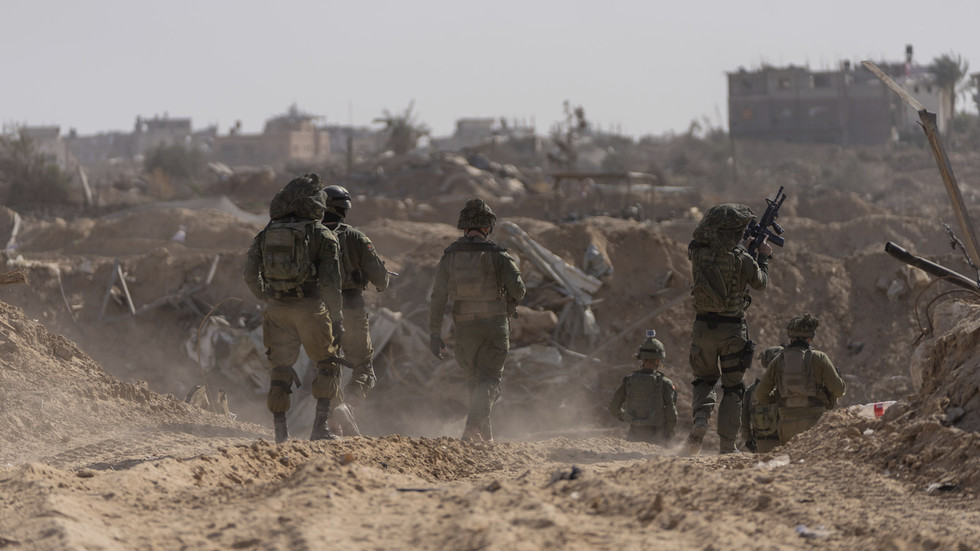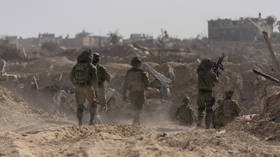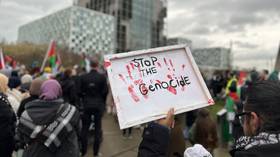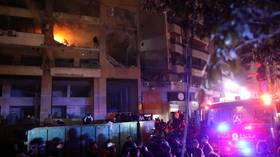
The leader reiterates Israel’s intentions in Gaza following repeated criticism from rights groups

Israeli soldiers take up positions during a ground operation in Khan Younis, Gaza, January 10. 2024. © AP / Ohad Zwigenberg
Israeli Prime Minister Benjamin Netanyahu has insisted his country has no plans for a long-term occupation of Gaza and does not seek to displace civilians there. The Jewish state faces increasing scrutiny over its months-long military campaign, including charges of “genocide” by South Africa.
Speaking in a brief video statement published in English on Wednesday night, Netanyahu sought to clarify several points, arguing that Israel Defense Forces (IDF) operations have not targeted non-combatants in Gaza and are solely focused on Hamas fighters.
“Israel has no intention of permanently occupying Gaza or displacing its civilian population. Israel is fighting Hamas terrorists, not the Palestinian population, and we are doing so in full compliance with international law,” the PM said. He added that Israeli troops were doing their “utmost” to avoid civilian death while Hamas used bystanders as “human shields.”

Netanyahu went on to say that Israel’s main goals were to “rid Gaza of Hamas terrorists and free our hostages,” after which the enclave would be “demilitarized and deradicalized.” The leader did not elaborate on what that would entail, however.
The statement comes as Israel is set to face genocide allegations before the International Court of Justice in a case brought by South Africa, which has grown intensely critical of the Gaza onslaught. The global body will hold sessions later this week to determine whether Israel has violated the 1948 Genocide Convention, an agreement barring any “acts committed with intent to destroy, in whole or in part, a national, ethnical, racial or religious group.”
Pretoria has requested an emergency ruling demanding that the military campaign in Gaza be halted, while President Cyril Ramaphosa said the case was launched due to the “ongoing slaughter” of Palestinian civilians.
Israeli government spokesperson Eylon Levy also weighed in on the proceedings on Wednesday, rejecting the genocide charge as an example of anti-Semitic “blood libel” and accusing South Africa of providing “political and legal cover to the Hamas Rapist Regime.”

South Africa has not been alone in its criticism of the latest IDF operation, with a number of human rights organizations, including the United Nations, also warning of a dire humanitarian crisis due to Israeli bombardment and blockade.
During a press briefing last week, UN humanitarian chief Martin Griffiths said Gaza had been left in ruins under IDF airstrikes and shelling, noting that the enclave’s population of 2.3 million faced “daily threats to their very existence.” He described Gaza as “uninhabitable” after three months of war, and warned of a looming famine and public health emergency amid extreme shortages of key goods.
According to local officials, more than 23,000 Gazans have been killed since Israel launched its operation, which came in response to a deadly Hamas terrorist attack in October which claimed some 1,200 lives. The Palestinian militant group also captured over 200 hostages, though around half were released in prisoner swaps between the warring parties.




